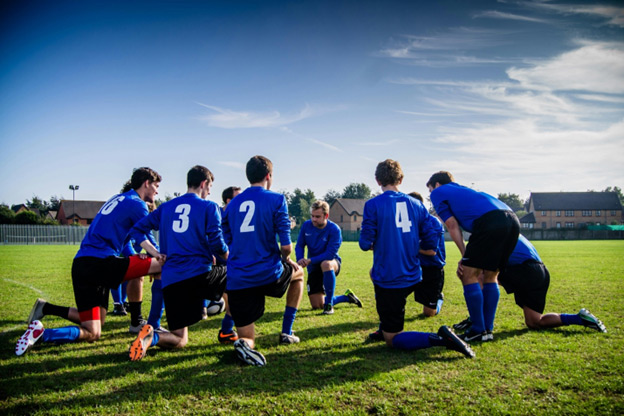Tips to Write an Impressive Commonapp Activity ListJune 11, 2024

Wondering how to spend your summer break? We’ve got you covered! Here’s all you need to know about writing up a list of activities for University applications/Common App
We understand that college applications can be an exciting, but a time consuming experience. Starting early gives you more time to strategize and map out all the little, but key details that will bring you a step closer to your dream school. Summer is an ideal time to collect your thoughts, create a comprehensive list of activities, internships, awards and honours that you might want your colleges to know.
Do I need to include a CV with my College Application?
Although a traditional resume may not be necessary to attach, we recommend that preparing one during this process may prove helpful. Higher education applications essentially focus on showcasing what makes you a unique candidate from the rest. A simple, yet effective way of doing this is to prepare a comprehensive list of your skills, extracurricular activities, and professional experiences throughout your high school years.
You could also include a personal project that you have spearheaded in your class or worked on a cause that you may be passionate about during this period.
The process is straightforward for most universities, including the Common Application. There is an entire section dedicated to this where you can input all your list of activities and above mentioned information. For those of you wanting to apply for merit-based scholarships, summer programs, and internships, this information is important for you to record and keep handy.
Similarly, it is helpful to also have an updated list of activities to share with your study abroad counselor and/or other teachers who might be working closely with you through this process, particularly at the time of collecting your letters of recommendation. Remember– this information will go a long way in providing context towards securing a well-rounded recommendation letter!
Building your list of activities– when, what and how
Grades nine to twelve are extremely crucial in the journey towards building your higher education application. We recommend applicants continue putting together their list of extracurricular activities during this phase in the run up to your final Common Application submission. This will help you avoid missing out on key details of your participation and achievements throughout this period. More importantly, reflect any changes in your interests, internships, leadership roles, part-time jobs, and short summer courses.
Things Colleges look for and what should I include in my academic and extracurricular activities list:
We understand that you have diverse interests, and it may be hard for you to pick only one at this point. Some of you may be budding artists and also love to study about planets or juggle numbers, while being passionate about theater at the same time! Wearing many hats is certainly an asset, but what are college application committees looking for in an applicant? The answer is simple: to build a well-rounded class of specialists that showcase a deep-rooted interest in one or more areas of school or extracurricular activities. We recommend that you take this time in your application journey to reflect on what you are truly passionate about and hope to further explore during your higher education.
Academic information: What’s Important?
Academic achievements should feature at the top of your activities list. We know you have been working hard, and now is the time to put together your list of academic achievements! A thorough check of your work spanning the last four years– from GPA/overall academic percentage, SAT/TOEFL/ACT scores, honours and related academic awards, must be added. This will be helpful in supplementing more context for those reviewing your application– scholarship committees, admissions officers for summer programs, in addition to those writing your letters of recommendation. This information could play an important role to analyse how your academic and school achievements may best align with the needs and goals of a particular university.
Extracurricular activities: all you need to cover for a successful college application
Next in line, and equally important, is your list of extracurricular activities. Make sure you pay attention to every detail while drawing up this list, and carefully define each activity undertaken starting from grade nine. It is, however, easy to get lost in the sea of information that you might have gathered over time, but adhering to the word limit is key here. To make your college application stand out, be sure to include volunteer experiences, or any other local community service projects that you have participated in.Additional activities like summer experiences to boost your critical thinking and communication skills or a personal project linked to a social cause you may be passionate about, are a definite bonus to your application profile.
Remember, simply listing down these co-curricular achievements is not enough, especially positions of leadership that demonstrate great interpersonal skills and a sense of community engagement. Going over this brief checklist of details while highlighting these activities will be important:
- Leadership positions held within school clubs or societies, if any
- Duration of such a post or event organized
- Details of roles and responsibilities under the leadership
- Overall impact on: 1) personal development 2) society/community served
Awards and recognitions: adding more to your profile
Did you win the local science fair? Have you been recognized for your volunteer work in your community? After each activity, list any awards or recognition you have received while in high school. Explain why it was awarded, when you received it, and include any information that will provide additional context to those who might not be familiar with the award or organization. This is another way to demonstrate your skills and the impact you’ve made while providing additional information on your accomplishments to scholarship and college admissions committees.
Wondering whether you could include that award you won at your high school science fair? Or the recognition you received for your volunteer work at the local animal shelter and old-age homes? Use this section to input your list of awards and honours you have received in high school. Follow the same format as mentioned above– don’t forget to cover all the details about your engagement. Briefly explain why you received a particular award or recognition, when it was awarded and any other relevant information to help provide more context for your college application and scholarship review committees. In addition to your extracurricular and academic accolades, this proves as an important illustration of your skills and impact towards the greater good of your community. The idea of giving back to society demonstrates your drive to contribute towards not only your personal growth, but also use your skills to bring about positive changes to others’ in need.
Top 5 Tips for Writing an Activities List
1. Keep it brief, but meaningful
We’ve spent some time on understanding the importance of capturing a long-list of activities throughout grades nine to twelve. However, keeping it brief and impactful is the best way to communicate this information in your university application. The Common App has strict limitations on word counts which must be consistently adhered to. Overwriting could cost you, and lead to the possibility of key information being left out!
For instance, you must describe your position in 50 characters, organization name in 100 characters, and activity in 150. The Common App only allows you to enlist a maximum of 10 activities.
This is an iterative process, so being patient is key! We advise starting this process by including every activity, honours and awards from high school, but only adding those that you have sustained personal commitments to. More importantly, that also aligns with, and is valuable to colleges. For instance: Iifyou were only a key member of your school debate team and only participated in national level debate competitions in ninth grade, adding other activities against this might not add value. One-off clubs and short-term volunteer experiences should be left out, too.
2. Make a lasting impression
Now is the time to showcase your impact; don’t sell yourself short! Start with all your high-impact achievements and activities. College admission committees like to see how your passion and talent have driven change and made a difference to society. An important reminder at this stage is to understand that while you may be the main character of your story, the universities abroad also want to select candidates that can be future leaders of your college community on campus.
A simple way here could be to word your activities and achievements in a way that caters to this requirement. “Conducted a golf tournament in my school,” to be more specific — “Conducted a golf tournament in my school with 500+ participants, and raising $300 to fund an underprivileged childs golf lessons.”
3. Enhance your vocabulary, to stand out
Try to use catch action words vs words like ‘Made’ ‘Did’. These words are not impactful and do not keep the reader engaged. Use words like ‘Directed’ ‘Executed’.
Examples of other action verbs one should include:
- Initiated
- Spearheaded
- Organized
- Created
- Conducted
- Authored
- Demonstrated
- Facilitated
- Developed
- Managed
4. Honesty goes a long way!
Be confident, but run with caution. While this is your time to shine and showcase all the hard work you have put in throughout this period, it’s very important to remind yourself of the dangers of exaggerating any achievements you share on a public domain, i.e; your application. The college admissions review committee officers have ways to check your achievements and test the authenticity of your claims; using social media platforms could be one way to perform this litmus test! In the event of any false information, this could raise a red flag and in turn, put other aspects of your application in jeopardy.
5. Keep updating!
Remember, your activities list is a constant work in progress! Keep it updated as often as possible to record and reflect any changes and advancements you make during the four year period. Once you curate this list, a simple way to store this information safely is on platforms like Google Drive, among others. You must ensure that you revisit this list each time a new activity or an academic change needs to be reflected in order to simplify your task of maintaining a laundry list of key achievements through the course of your higher education journey.
Make sure to include changes in GPA, class ranks, test scores, new volunteer and internship opportunities, participation in any local, state, or state/national level events/ competitions, and other clubs. Staying organized helps you stay on track with your larger academic goals and provides an overview of your applicant profile to stay aligned with the requirements of summer college programs and scholarships.




